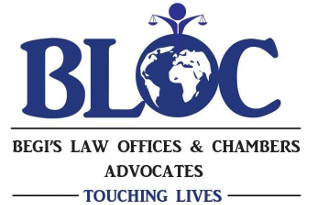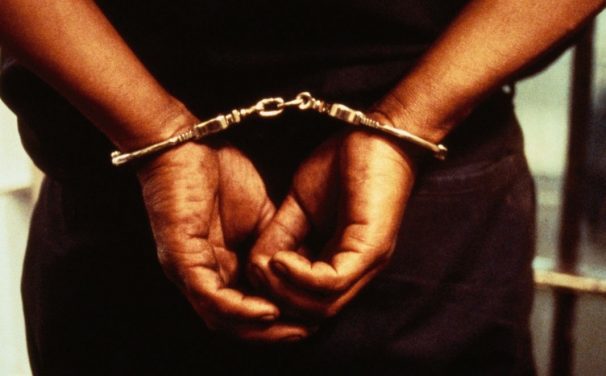It could be you
It was a bright Monday morning when I left my chambers in town going to the children’s court. I have always had a soft spot for children as I look at them as the most vulnerable section of our society. I was eager to serve and handle children in conflict with the law. I did not know what to expect, but deep down I had this gut feeling that this otherwise normal day would have an extra-normal impact in my law practice.
His name is John* (not his real name), a 12 year old boy accused of possession of narcotics contrary to Section 3 of the Narcotic Drugs and Psychotropic Substances Act . His appearance was that of a troubled child facing a strange and harsh process he had no idea about. my job was to tell his story. After all, that is an Advocate’s main duty to a client. Most persons hold the belief that we defend clients, while in reality all we do is to tell the client’s story. But first, I had to know his story.
He told me that he had been arrested in a hotel by some police officers who then took him to a police station where he was told that he was being charged with possession of a narcotic drug commonly called bhang. As he narrated his story, I could see him fighting tears and I knew that inside the skin of this tough boy, was a scared child. he told me that he had never even seen bhang in his life and that he was a mere victim of a police frame-up.
Police frame-ups are a common occurrence in Kenya. They occur when the police, actuated by malice or maybe a zeal to remain relevant, create crimes which they can then arrest and charge persons with. If they cannot find a way to put you in the crime scene, they bring the crime scene to you. The latter, as I discovered later, applied to John.
Various gaps in the law make it possible for the police to do so. An example is the law that John had been accused of contravening. A law which imputed guilt on a person for the mere possession of a narcotic, whether or not the person knew that he/she had the narcotic or not. In a nutshell, under that law, the police can carry bhang with them, throw the bhang in your bag, and then arrest you a minute later for possession, the duration notwithstanding.
After half an hour of getting to know his story, it was time to go to court. John pleaded not-guilty and the hearing begun. The prosecution’s main witnesses were the police officers who arrested John. Strangely enough, the government chemist was not called as a witness.
Here is a short paraphrased transcript of the general cross examination of one of the police witnesses
Me: You are a very dedicated policeman aren’t you?
Witness: Yes I am
Me: In fact you were recently promoted to the rank of an inspector of police right?
Witness: Yes
Me: You hate drug dealers right?
Witness: Ofcourse, especially those who sell drugs through children
Me: And you would do anything in your power to clean the streets of these children right?
Witness: Yes! I want clean streets ( I had set a trap and he went right into it)
Me: Great, now let’s talk about the arrest. Did you know John before you arrested him?
Witness: No
Me: But you said you were tipped off that he was selling drugs by informers?
Witness: Yes, we had been looking for him for a long time
Me: But you just said that you didn’t know John before !
Witness: {silence}
Me: Did you just lie to the court?
Witness: What I meant is that I didn’t know him personally. I just knew him as a suspect who had earlier escaped from the police station
Me: Let’s talk about that, so initially he had been arrested right?
Witness: Yes,
Me: For a similar offence right?
Witness: Yes
Me: You locked him up in a cell right?
Witness: yes
Me; But he miraculously escaped didn’t he?
Witness: He said he wanted to be escorted to the toilet and when he was being escorted he ran away.
Me: The toilets are inside the cell right?
Witness: Yes
Me: Behind the report office right?
Witness: Yes
Me: The report office has at least two officers at a time right?
Witness: Yes
Me: And the gate has another officer right?
Witness: Right
Me: So a 12 year old boy ran past all the officers in the report office and through the gate without anyone catching him?
Witness: {silence}
Me: Anyway let’s move on, you said that you found bhang on him right?
Witness: Yes
Me: Are you a chemist?
Witness: No
Me: Do you use bhang?
Witness: No
Me; Did you perform test on the substance you said you found him with to know whether it is bhang or not?
Witness: I knew it was bhang because we are trained to identify bhang in the police college. Everyone knows how the rolls are. We just need to see it.
Me: If I showed you two rolls, one of bhang and another of a different substance, you can identify the bhang rolls that you found John with right?
Witness: Yes
{ My assistant had carefully packed rolls of white chalk to look like bhang rolls and I informed the court on the prosecutors objection that it was to test whether the witness can identify the substance he arrested john with. The witness identified the rolls of chalk as what he had arrested John with}
Me: Do you realize that you have just pointed out the chalk instead of bhang?
Witness: { silence}
Me: Nothing further
After going through the motions, John was acquitted because of insufficient evidence. I couldn’t help but wonder how to the society, John was a bad boy, a boy who deserved to be shown no mercy and to just be locked up. But in reality, he was just another child, who was a victim of unfortunate police-created circumstances.
I realized that the constitutional provision of innocence until proven guilty was put for a reason. Practicing criminal law and children’s litigation has taught me never to judge a book by its cover. Never to be too quick to pass write off anyone. As lawyers, we represent our clients and tell their stories. We do not defend them. We just make sure that if someone is to be convicted and jailed, he or she will be punished for what they really did, and the prosecution will have to do a really good job at that.
Next time you are tempted to pass judgment on someone who is accused of a crime before the court passes its judgement, take time and remember that that accused person, could easily be you.

